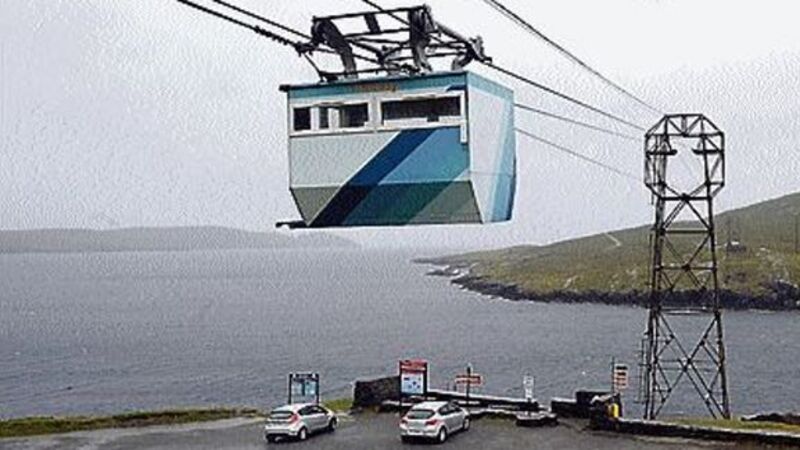The view from above

The cable car was opened in 1969 by Taoiseach Jack Lynch and was the brainchild of a priest who had observed a farmer, Tadgh Rogers, hooking up a homemade cable car to move sheep to Crow Island. The Dursey cable car is a lifeline for residents, farmers and tourists.
Images of cattle travelling on the cable car have long been associated with West Cork.












